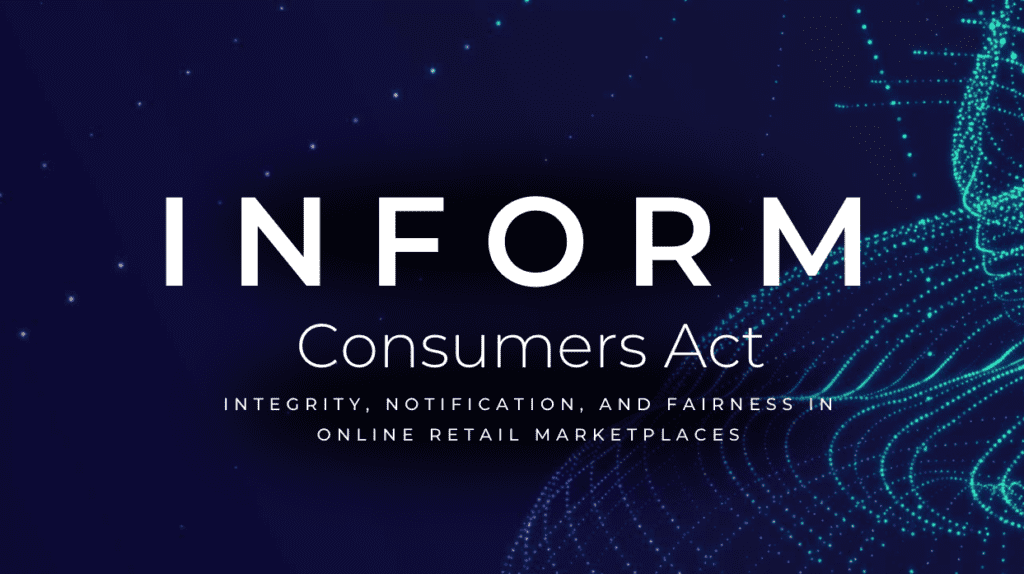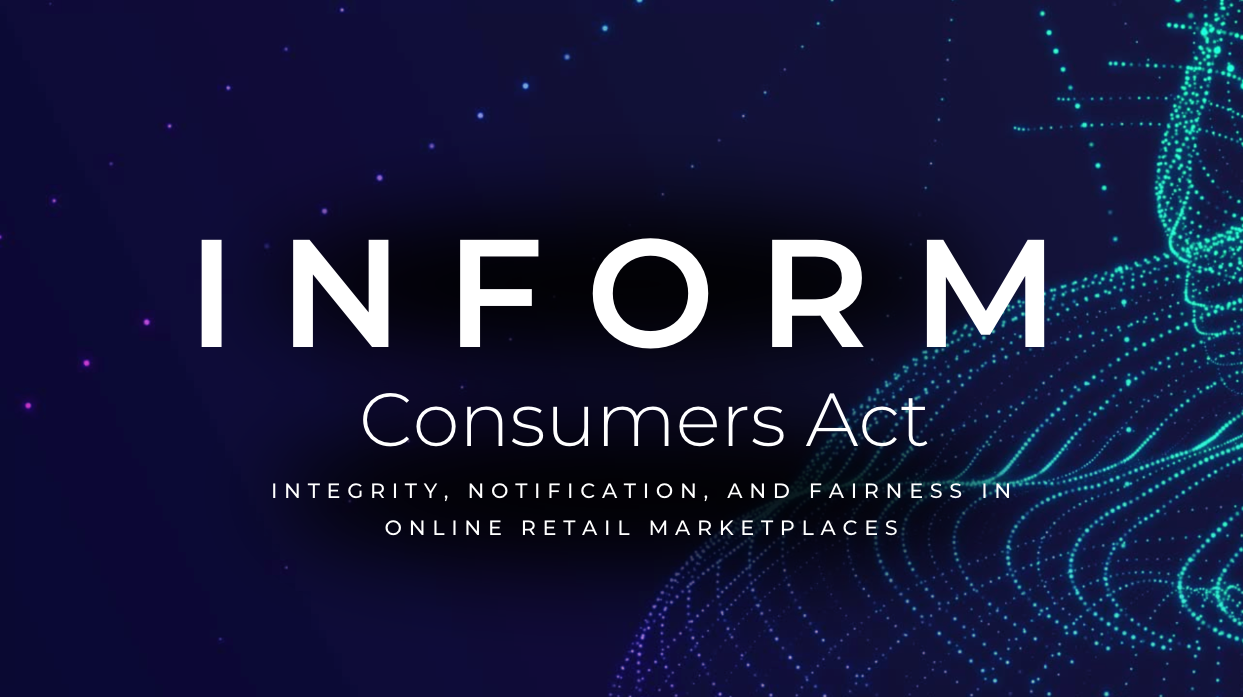The INFORM Consumers Act – What it means for the Online Marketplace Ecosystem
What is the INFORM Consumers Act?

In today’s increasingly digital world, consumers face many challenges regarding online shopping, and brands face multiple challenges when protecting their intellectual property. From deceptive advertising to counterfeit products, it can be difficult for consumers to make informed choices and trust the information they encounter online.
Recognizing these concerns, the U.S. government introduced the INFORM Consumers Act (Integrity, Notification, and Fairness in Online Retail Marketplaces for Consumers Act) to protect and empower consumers in their online transactions. Under this act, online marketplaces must provide specific essential information about third-party sellers on their platforms.
This requirement includes verifying and disclosing the seller’s identity, contact information, and location. By enhancing transparency, consumers and brands alike can make more informed decisions and have recourse against fraudulent or deceptive practices.
On Tuesday, June 27th, the INFORM Consumers Act officially became effective. On June 20th, the FTC, who is responsible for enforcing the new law, sent 50 letters to online marketplaces “notifying them of their obligation to comply” with INFORM’s requirements. The FTC is empowered to impose civil penalties of $50,120 per violation for online marketplaces and take necessary actions to protect consumer interests. This enhanced authority ensures that regulatory bodies have the tools and resources to enforce compliance and deter fraudulent activities
How INFORM Promotes Consumer Safety
The INFORM Consumers Act can positively change the online marketplace ecosystem. By promoting transparency, accountability, and consumer rights, the act aims to instill greater trust all around. It may lead to more informed purchasing decisions, a reduced prevalence of counterfeit products, and an overall improvement in the online e-commerce experience.
![]()
Counterfeit goods have been a significant concern in online marketplaces. The act places responsibility on online platforms to take necessary measures to identify and remove counterfeit products. It also mandates the establishment of a process to report suspected counterfeit goods. By holding online marketplaces accountable, the act aims to reduce the prevalence of such products and protect consumers from unknowingly purchasing inferior or potentially dangerous goods.
Many online marketplaces already have effective mechanisms in place to address these concerns and have been implementing practices and policies for some time. For others, this may lead to increased costs to platforms as they invest in advanced technological solutions and human resources to comply with these requirements.
The INFORM Consumers Act represents a significant step towards safeguarding consumer interests in the digital age. The act aims to enhance transparency, address counterfeit goods, and strengthen consumer rights by imposing new requirements on online marketplaces. While it places additional responsibilities on online platforms (many of whom have already risen to the task), the potential benefits of consumer trust and satisfaction are substantial. As the act is implemented and its impact becomes evident, evaluating its effectiveness and making necessary adjustments will be crucial to ensure a fair and secure online marketplace for all consumers.
Author

